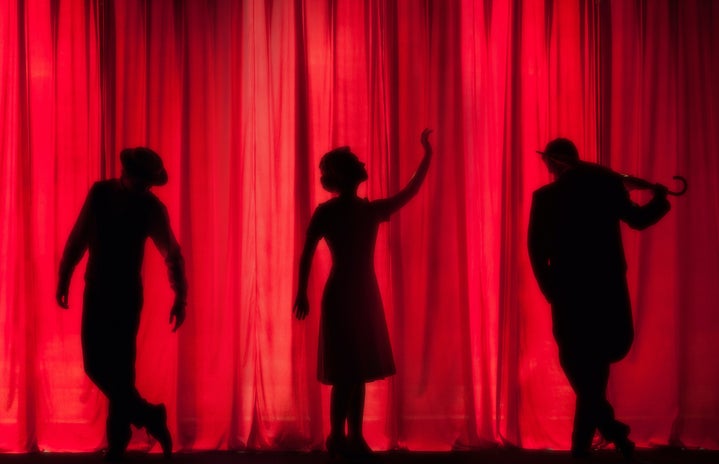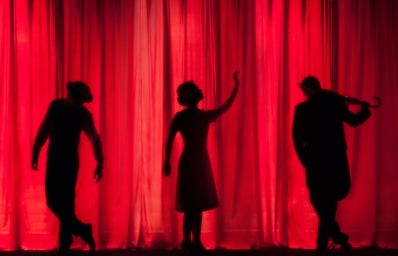Edited by: Madhumitha Arivu Chelvan
TW: graphic mentions of rape, domestic abuse and death.
ROOH, an ADA dramatics production, in collaboration with Naqaabfilms, is a heart-rending play. The writing and the dialogue do not seek to ease the audience into the reality of sexual abuse and its impact on society. It seeks to call us out, to remind us that every passing second, our reality worsens.1
Viewer discretion is advised for the play. It is, however, essential to remember that while the words may not be nuanced on the ears, they are jolting for the consciousness. This is all achieved simply through a conversation between 5 people, sheltered in a room.
The play starts with a startling doorbell, the moment you hear the ring, your senses are reeled in for an unforgettable experience. The narration refers to an incident that has shaken every citizen of the country, leaving everyone restless and shattered in its wake.
‘Rooh’ employs the use of magical realism, which usually refers to the coexistence of the real and fantastical elements within the act. These surreal elements are never questioned within the narrative. Magical realism exists to reveal the absurd and, often, jarring parts of society. This play attains the same, holding a mirror to the absurd reactions of society to the victims of abuse.
The narration follows in the footsteps of real-life journalism, evading the actual mentions of the incident and the dignity of the associated trauma. Instead, it focuses on the sensationalization of emotions and exaggeration of ‘anger’ within each citizen of the country, simply bypassing the persons at the center of such incidents.
The narration fades into white noise at the introduction of the title card, introducing us to our characters.
We are abruptly pushed into a room with five people, each starkly different from the other. There is a looming discomfort since the beginning of the shot, where the audience discerns that they are witnessing a conversation they are not habituated to.
Each character has a contrasting persona. Mausi [translation: Aunt] bickers with a much-younger Jyoti over the heat–
“You complain of the heat in those shorts, yet I am here burning in this saree.”
The reference to clothing is not nuanced, nor is it meant to be. Each person within this room is dressed differently, the diversity of the characters’ backgrounds, personalities and circumstances established within the beginning few minutes of the play.
The knocks persist, making each character more restless with the staggering noise. While the five people debate on how they could accommodate another person in this heated, congested space, one person raises his voice –
“Where will she… or he go?”
As the discussion continues, it is made clear that each character has their conflicting morals on letting more people in. The country today, in its state, will lead to more people in this room every passing day and hour; where does the moral responsibility of the characters end?
In this context, Jyoti emphasizes:
“No one asked us what we wanted, they stuffed us in this room like sheep in a herd.”
An impending question remains; how can they choose who gets to stay and who gets to leave?
This is where a rather jarring sentence hits the audience;
“Those who were exploited by their father, husband or brother continuously, they get to stay.”
The realization settles in the moment this dialogue takes its form. These are not just characters in a play, these are stories true in their roots. The nonchalant tone of Jyoti while delivering this sentence hits harder. It is simply a fact, a comparison for her. A rather haunting notion dawns upon us; sexual abuse often rises from people known and close to victims.2
The character of Mausi is written in a way that taunts others of their trauma, often trivializing her own. While her words are cruel to each character, it also forces them to relive and recount their experiences, reminding them constantly of their plight. The mockery that Mausi perpetuates is not separated from society itself. Her jibes at the young Jyoti and how she “must have forgotten the number of people ” who exploited her cuts through the consciousness. This play is not just an act, it is a distorted mirror of reality. Victims of abuse face mockery and victim-blaming routinely in their lives.
The dialogue within this play hits hard – it is not meant to be easy on the ears of the audience. Focusing on a group of five people in a single room, the dialogue is the sole essence of this play. Each unsparing line is delivered in a way that is more uncompromising than the last; a way to force open the curtains of shame and taboo shrouding the topics of rape and abuse. The play has a simple purpose: the conversation around abuse and sex crimes needs to be highlighted and acknowledged, rather than dealt with in shame on behalf of the victims.
Nearing the climax of the play, each character recounts their own experience. Each character recounts their trauma and reveals the way they were brutally murdered. While the reveal itself might be evident from the preceding dialogues, it is the way they unfold their stories that numbs you down from the grief and agony of being helpless.
The character of a ‘socially well-off’ woman begins the narrative. The dialogue from here on is heavy, filled with the anxiety and agony of each victim. Graphic descriptions are evident from here on, thus, viewer discretion is advised. None of these details, however, are added for shock value. The dialogue intends to make the audience conscious of the reality of rape. It is not just an incident that demands justice and aggression. It is an incident that is tied to people. It requires healing, a sense of support and growing as a community, and constant relearning and efforts to erase the ties of such violence to a taboo that cannot be spoken of.
While each character narrates their story, it becomes clear that they carry traumas from perpetrators of different phases of life. Mausi faced marital rape throughout her childhood, until the day of her passing; marital rape is considered legal in India.3
The ‘socially well-off’ character is portrayed as someone who is well-educated and comes from higher strata of society. This leads to Mausi often mocking her for sitting on a throne, seemingly superior to others. She is taunted for being sexually abused, just as the rest of the characters. It is often expected of rape victims and families to often hide the crime in an attempt to save their dignity and status. To an extent, the same is expected from this character.
Jyoti narrates that her perpetrators were two of her friends, in the middle of the road at night, leading to her death. Another character, that of a religious, middle-class housewife faces a similar travesty, where she is abused by her own husband’s friend. She outlines her day of preparing dishes and snacks for her husband’s get-together, her last day spent in acts of service. The last character is a man, shielded from the world by his parents. He elaborates on how he delved into a world of misjudgments, leading to his eventual arrest. The arrest of this character leads to police brutality.
The name of the play resonates with each character. ‘Rooh’, translates to soul; tied both to the fantastical plot of five souls conversing in a small room and the fact that the conversation revolves around a soul-crushing trauma that binds them together.
All the scenarios are different from the others. They carry no reason or justification. The tie amongst all the characters is the thread of trauma and abuse, each with their grief and compassion. The discussion comes to an end in their mourning for themselves and for others who may enter the room. They choose that they can live in a crowd, in this small heated room, but they can’t leave others at the mercy of the inhumane.
The play ends as the characters open the door; they are ready to let others in.
Two small hands carrying a doll enter the door. No words remain.
ROOH, an ADA dramatics production, in collaboration with Naqaabfilms:


